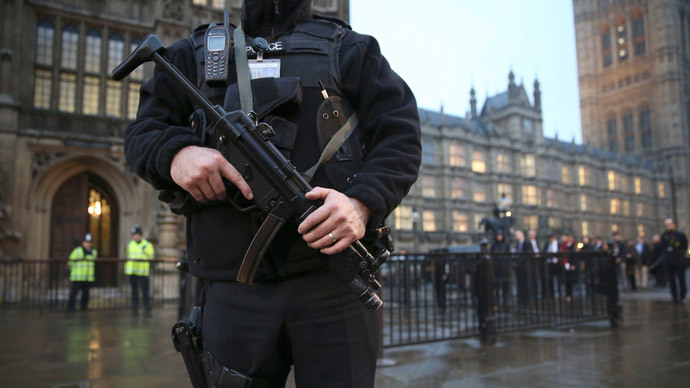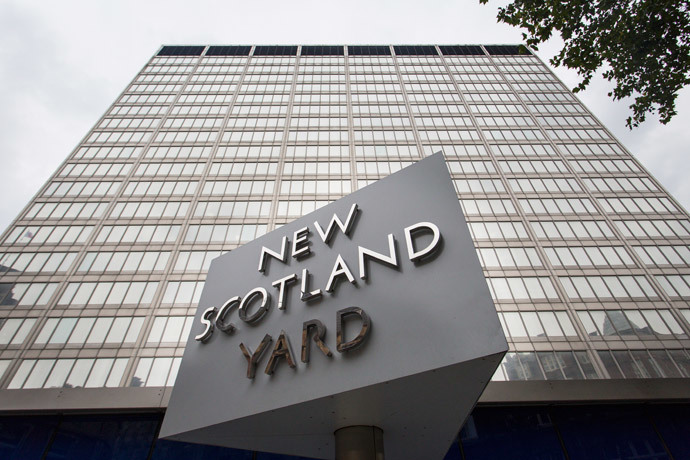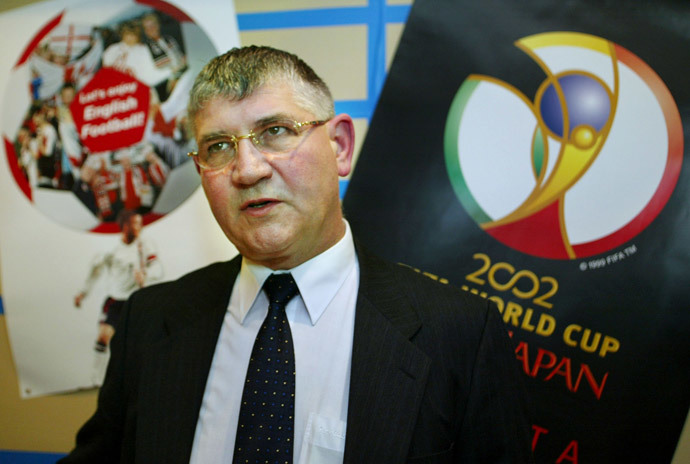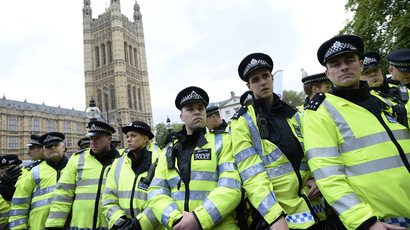Over half Britain’s crime chiefs accused of impropriety

Over 50 percent of the government’s elected Police and Crime Commissioners (PCC) have been accused of misconduct and subsequently probed by the state’s policing watchdog, new figures reveal.
The Independent Police Complaints Commission (IPCC) has investigated "44 referrals from police and crime commissioners" relating to potential impropriety on behalf of 23 separate police chiefs, a spokesman for the body said on Monday.
This figure amounts to more than half of the 41 PCCS who were officially elected in November 2012, he told RT.
Following the wave of allegations, a specially-appointed parliamentary committee will hold an inquiry into the high frequency of complaints amid growing concern that PCCs can only be removed from their posts via the ballot box.
Britain’s most senior crime chiefs have been party to multiple controversies of late, the most contentious of which culminated in the resignation of South Yorkshire PCC Shaun Wright, following a prolonged period of public and political pressure.
The IPCC is currently assessing a complaint regarding Wright’s alleged awareness of child sexual exploitation, which occurred while he served as a councilor in Rotherham. The watchdog’s announcement on whether an official investigation is required is expected to transpire shortly.

Wright served as the cabinet member who presided over child services at Rotherham between 2005 and 2010 – in the midst of a 16-year period during which children in the region suffered widespread trafficking, grooming, sexual abuse and gang rape. Yet despite repeated warnings of child sex abuse in the area, he reportedly failed to intervene.
Misconduct allegations
The state's high levels of misconduct allegations leveled against crime chiefs first came to light following an investigation by the Times. A spokesman for the IPCC told the paper the grievances were noted by regional police forces as well as the offices of the PCCs in question.
The watchdog carried out preliminary investigations into most of the complaints.
Twelve of a total of 44 were rejected, while six progressed to official, independent investigations, an IPCC spokesman told RT on Monday. The IPCC is managing a seventh probe, the investigative work for which is being conducted by City of London Police, he added.
The remaining 25 cases were assigned back to regional police and crime panels, the spokesman said, as the IPCC’s curbed power means it can only examine matters of a “criminal or potentially criminal nature.”
Among the crime commissioners facing official investigation by the IPCC, is Lancashire PCC Clive Grunshaw. At present, the Crown Prosecution Service (CPS) is assessing information relating to mileage claims he allegedly made while he was a serving Labour councilor, according to the Times.

The watchdog is also due to issue a decision on whether it will refer Durham PCC Ron Hogg to the CPS, who has been the focus of allegations regarding benefits.
Gunshaw and Hogg deny any wrongdoing, the paper reports.
Endemic misconduct?
The chairman of the parliamentary home affairs select committee, Keith Vaz, told the Times he will write to police and crime panels regarding the 25 cases the IPCC is unable to examine to inquire about how they had been investigated.
At present, PCCs can only be removed from their positions when they have served a full four-year term, unless they have been convicted of a criminal offence.
In September, however, Home Secretary Theresa May called for the introduction of recall powers for crime chiefs who were deemed to be failing in their role. The proposed policy shift was sparked by former PCC Shaun Wright’s refusal to resign in the wake of the Rotherham scandal.
The Association of Police and Crime Commissioners is considering May’s proposal, and also reportedly making police and crime panels more robust.
In late August, figures released under the Freedom of Information (FOI) Act revealed almost 100 police officers are suspended on suspicion of corruption annually in Britain.
Documents handed to the MailOnline show a total of 460 officers have faced investigation in the last five years. Instances include selling information, hacking police computers and interfering with criminal probes.














